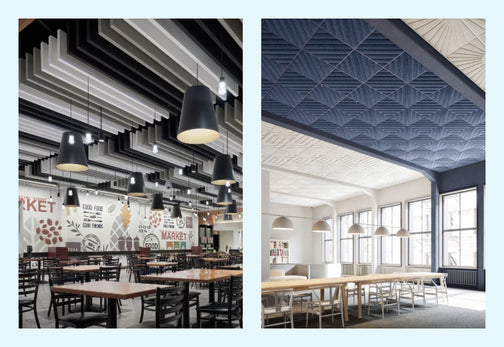Browse Armstrong Ceiling Grid
Browse Armstrong Ceiling Grid
- Black
- Stone
- Grey Stone
- Ivory
- Light Grey
- Medium Taupe
- Silver Satin
- Blizzard White
- Silver Grey
- Bronze
- Copper
- Pewter
- Silver
- Charcoal Black
- Basalt
- Riverstone
- Coffee
- Polar
- Limestone
- Fossil
- Sandstone
- Hay
- Oat
- +19
- Black
- Bronze
- Charcoal Black
- Ivory
- Light Grey
- Medium Taupe
- Silver Grey
- Silver Satin
- Blizzard White
- Stone
- Sandstone
- Fossil
- Feldspar
- Boxwood
- Lilac
- Rainstorm
- Oat
- Grey Stone
- Hay
- Mist
- +16
- White
- Black
- Light Grey
- Grey Stone
- Stone
- Mist
- Sandstone
- Fossil
- Feldspar
- Boxwood
- Lilac
- Rainstorm
- Oat
- +8
- White
- Black
- Adobe
- Basalt
- Blizzard White
- Boxwood
- Bronze
- Bronzite
- Charcoal Black
- Coffee
- Copper
- Feldspar
- Fern
- Fossil
- Grey Stone
- Hay
- Honeysuckle
- Ivory
- Ivy
- Light Grey
- Lilac
- Limestone
- Marigold
- Medium Taupe
- Mist
- Oat
- Ocean
- Pacific
- Pewter
- Polar
- Rainstorm
- Riverstone
- Rose
- Sandstone
- Silver
- Stone
- Twilight
- Topaz
- +32
- White
- Black
- Grey Stone
- Ivory
- Light Grey
- Medium Taupe
- Blizzard White
- +2
- White
- Black
- Mist
- Pacific
- Rainstorm
- Lilac
- Twilight
- Ocean
- Boxwood
- Fern
- Ivy
- Feldspar
- Topaz
- Bronzite
- Honeysuckle
- Marigold
- Rose
- Stone
- Grey Stone
- Ivory
- Light Grey
- Medium Taupe
- Silver Satin
- Blizzard White
- Silver Grey
- Bronze
- Copper
- Pewter
- Silver
- Charcoal Black
- Basalt
- Riverstone
- Coffee
- Polar
- Limestone
- Fossil
- Sandstone
- Hay
- Oat
- Adobe
- +35
- White
- Mist
- Pacific
- Rainstorm
- Lilac
- Twilight
- Ocean
- Boxwood
- Fern
- Ivy
- Feldspar
- Topaz
- Bronzite
- Honeysuckle
- Marigold
- Rose
- Black
- Stone
- Grey Stone
- Ivory
- Light Grey
- Medium Taupe
- Silver Satin
- Blizzard White
- Silver Grey
- Bronze
- Copper
- Pewter
- Silver
- Charcoal Black
- Adobe
- +26
Ceiling Grid
Armstrong suspended ceiling grid systems, also known as drop ceiling grids, are available in various widths, performance features, and color options to meet your building’s specific requirements.
What is a ceiling grid system?
A ceiling grid system consists of main beams and cross-tees and hangs from the ceiling deck by hanger wires, providing a framework for ceiling tiles to set in place. Ceiling grid systems allow for room above the ceiling panels so that you can easily access ductwork, plumbing, and wiring.
What are the benefits of using a ceiling grid system?
Ceiling grids that hold mineral fiber ceiling tiles help improve acoustics, conceal imperfections, and enhance the aesthetic appeal of a room. Drop ceilings are an affordable way to finish the look of new construction or renovate existing spaces.
What size is the standard drop ceiling grid?
Commercial spaces install Armstrong’s standard PRELUDE 15/16" ceiling grid system or the SUPRAFINE 9/16" grid. 15/16” and 9/16” refer to the width of the main beams, you’ll order grid materials based on your selected tile or panel and the room’s square footage. Less common grid sizes like 1-½” are available as well.
What are the standard sizes for ceiling tiles in a grid system?
The most common sizes for ceiling tiles are 2’ x 2’ and 2’ x 4’. However, other sizes and dimensions are also available.
How much does it cost to have a ceiling grid installed?
The cost of installation is dependent on the size of the space, the type of grid chosen, and any special circumstances within the space. Ceiling tiles and panels also range in cost and quantity per carton, be sure to include all materials in your budget planning.
Can I customize the look of a ceiling grid system?
Yes, ceiling grids are available in various colors and finishes to match the décor of your space. Decorative ceiling tiles offer edge details that allow you to customize your overall ceiling look.
How is a ceiling grid system installed?
Ceiling grid installation involves hanging the metal grid framework from the structural ceiling using wires and fasteners. Once the grid is in place, ceiling tiles or panels are placed into the grid openings. While experienced DIYers can install a ceiling grid system, professional installation is recommended to ensure proper alignment, stability, and safety.
What lighting options work with ceiling grid systems?
Kanopi by Armstrong carries COOLEDGE acoustical lighting that fits perfectly into standard ceiling grids while absorbing sounds and blocking noises. Other lighting fixtures for drop ceilings include recessed lighting, troffer lights, and popular LED or economical fluorescent fixtures.
Are ceiling grid systems suitable for all types of buildings?
Ceiling grid systems are versatile and can be used in various commercial settings, including offices, schools, hospitals, and retail spaces, as well as residential properties.
Can ceiling grid systems improve energy efficiency?
Yes, ceiling grid systems that incorporate energy saving ceiling tiles with Templok reduce energy costs and consumption while reducing hot/cold complaints from occupants.
























 Thanks for subscribing!
Thanks for subscribing!

